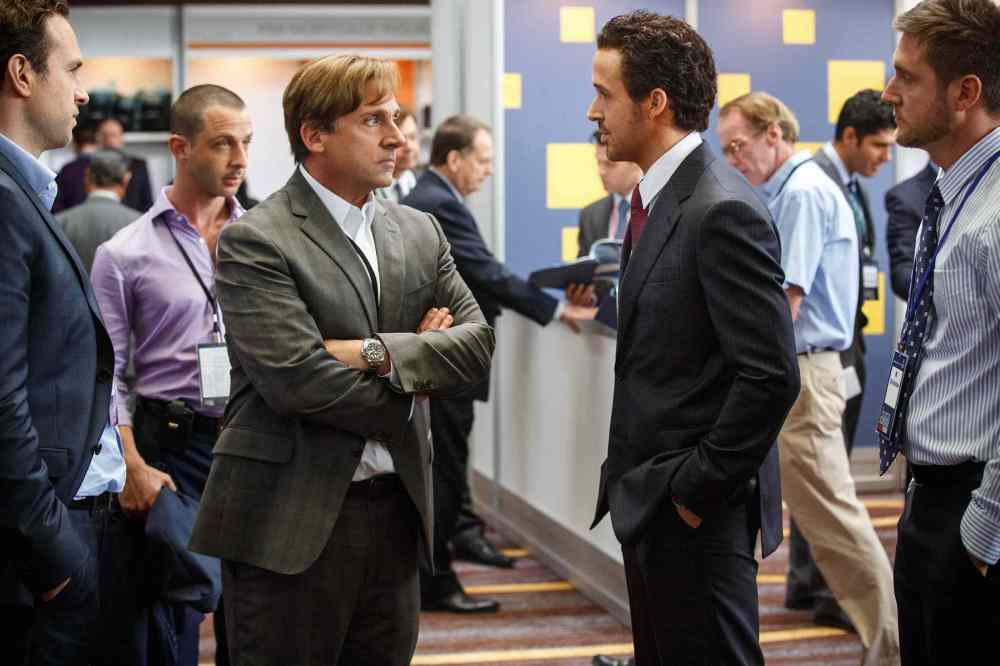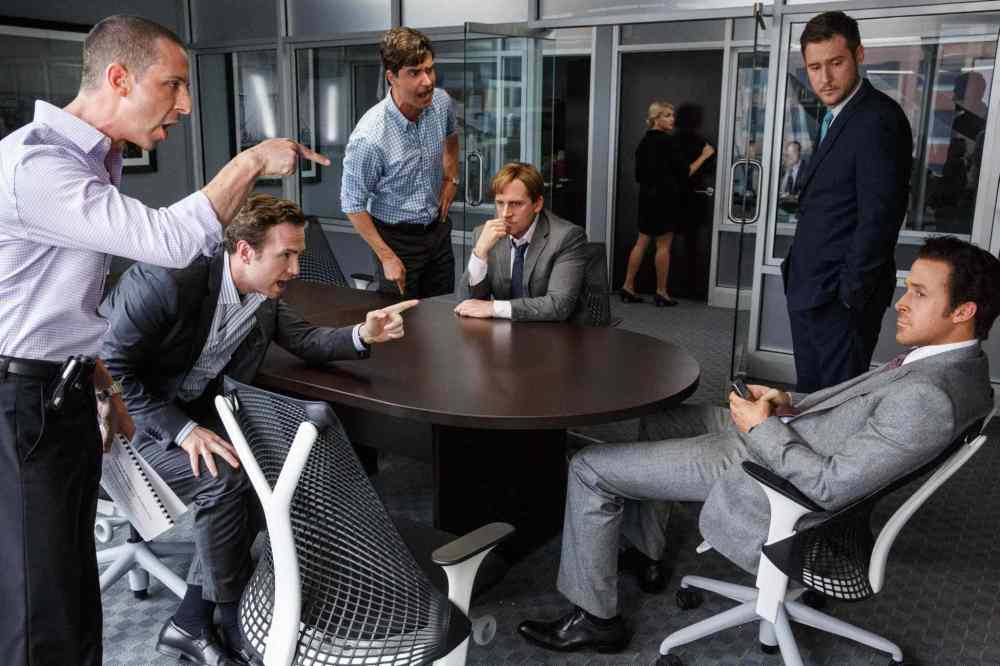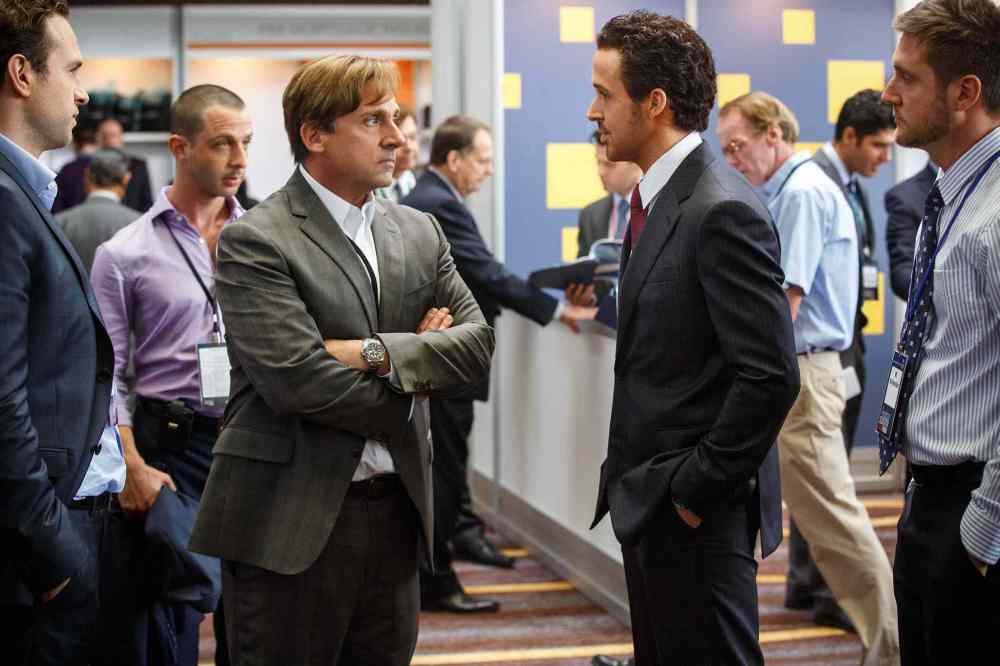Crash course
2008 economic crisis gets goosed by Anchorman director
Advertisement
Read this article for free:
or
Already have an account? Log in here »
To continue reading, please subscribe:
Monthly Digital Subscription
$0 for the first 4 weeks*
- Enjoy unlimited reading on winnipegfreepress.com
- Read the E-Edition, our digital replica newspaper
- Access News Break, our award-winning app
- Play interactive puzzles
*No charge for 4 weeks then price increases to the regular rate of $19.95 plus GST every four weeks. Offer available to new and qualified returning subscribers only. Cancel any time.
Monthly Digital Subscription
$4.99/week*
- Enjoy unlimited reading on winnipegfreepress.com
- Read the E-Edition, our digital replica newspaper
- Access News Break, our award-winning app
- Play interactive puzzles
*Billed as $19.95 plus GST every four weeks. Cancel any time.
To continue reading, please subscribe:
Add Free Press access to your Brandon Sun subscription for only an additional
$1 for the first 4 weeks*
*Your next subscription payment will increase by $1.00 and you will be charged $16.99 plus GST for four weeks. After four weeks, your payment will increase to $23.99 plus GST every four weeks.
Read unlimited articles for free today:
or
Already have an account? Log in here »
Hey there, time traveller!
This article was published 18/12/2015 (3667 days ago), so information in it may no longer be current.
LOS ANGELES — “I didn’t have in the back of my mind when I decided to write about credit-default swaps that someone’s going to come along and make a movie of it,” says author Michael Lewis of his book The Big Short.
“None of my books were written as movies,” he says. “I mean, I really thought it was hard enough to write a book about it.”
Nevertheless, two unlikely movies have been made sourcing Lewis’s non-fiction bestsellers. The first was Moneyball, based on his 2003 examination of how Oakland A’s general manager Billy Beane changed baseball by assembling a winning team by relying more on mathematical formulas than the expertise of coaches and scouts. In 2011, it was made into an Oscar-nominated film starring Brad Pitt.

On paper, The Big Short is even more challenging, as it examines the roots of the economic crisis that sent markets reeling in 2008. Lewis looks at the crisis through the eyes of a few people who saw the crash coming, and made money essentially by betting against the American economy.
“The characters are the only thing that made it possible (to write),” Lewis says. “They were so rich. They would carry a reader through the complexity.”
Of all people, it fell to director Adam McKay (Anchorman) to make a film of Lewis’s book. And like Lewis, McKay realized it would be the characters who would help audiences navigate the often esoteric territory of American finance.
“It was just amazing to say it about a book that’s about mortgage-backed securities, but it was a roller-coaster ride,” McKay says of the book.
It didn’t hurt that McKay had access to some formidable movie stars to help flesh out his film vision of Lewis’s book. Christian Bale plays the pivotal role of Michael Burry, the financial savant who first realized highly rated mortgage bonds were filled with delinquent home loans destined for a massive-scale default.
Ryan Gosling plays Jared Vennett, a slick Wall Street financier who hears of Burry’s theory and compels crusading hedge fund manager Mark Baum (Steve Carell) to buy into it. Finally, Brad Pitt plays cynical retired banker Ben Rickert, drafted by a couple of talented money managers (Finn Wittrock and John Magaro) to raise a billion-dollar bet against Wall Street.
❚ ❚ ❚
In playing the socially awkward Burry, Bale often had director McKay to himself — and he liked it.
“I met Steve (Carell) for the first time last night,” Bale says.
“I really loved just working by myself,” he says. “It was great. So much fun.

“Adam would just talk… to me whilst I was in the office or make fun of what I was doing or whatever. But it’s amazing how much you can get done when there’s nobody else,” Bale says. “We shot for nine days, I think, and man, we just banged out the pages so quick. When you’re by yourself, there’s really no continuity that you got worry about. So each and every take, it’s like just do whatever the bloody hell you want.
“I loved it,” he says. “I want to make every film that way from now on.”
❚ ❚ ❚
“I was frankly surprised to be offered this part, and was very excited,” says Carell, who had worked with McKay before when he playing thick weatherman Brick Tamlan in the two Anchorman movies.
“When you say ‘Brad Pitt and Ryan Gosling and Christian Bale,’ I felt like one of these things is not like the other,” he says of his casting.
Eventually, Carell found comfort in embracing the complexity of his character, a Wall Street insider who rages against the financial machine.
“I saw him as a human being. I identified with the fact that he felt very much alone, and that he was approaching this, seemingly against insurmountable odds, and saw himself as this knight,” Carell says.
“It’s complicated, obviously, because it’s morally and ethically ambiguous, because he was certainly going to benefit from it all.”
❚ ❚ ❚

In a way, Gosling may have had the most difficult role of all. Unlike Bale and Carell’s characters, financier Vennett is a more slick, venal Wall Street type. Perversely, his character also serves as the audience’s emissary, at times addressing us directly.
For the Canadian actor, working with director McKay was incentive enough to take on the challenge.
“I love Adam’s movies and in some ways they’re not even movies, they’re like friends of mine or something,” he says. “Like, I’ll check in with Step Brothers just to see how it’s doing.
“So to be able to work with him at all was exciting, and then to get this script and to see that it’s sort of a departure for him and to be able to be a part of that as well just made it more exciting.
“In the hands of a lot of other filmmakers, it could have been very, very different,” Gosling says. “But Adam just has a way of maintaining his sense of humour about something that’s obviously very upsetting, and I think it’s very unique. It just was a very exciting thing to be a part of.”
Our newsroom depends on a growing audience of readers to power our journalism. If you are not a paid reader, please consider becoming a subscriber.
Our newsroom depends on its audience of readers to power our journalism. Thank you for your support.



